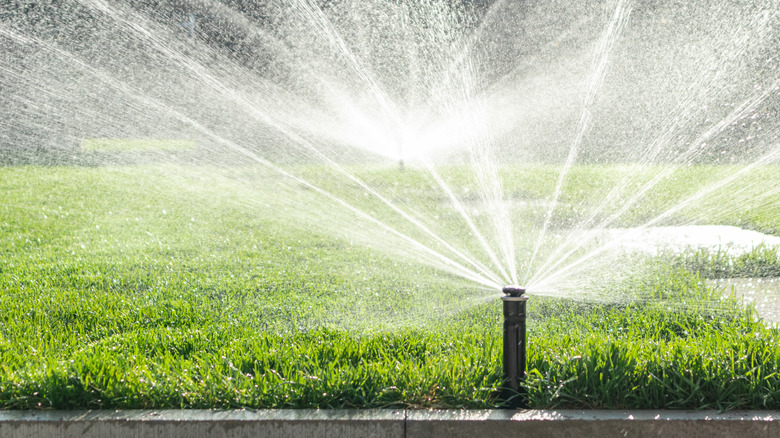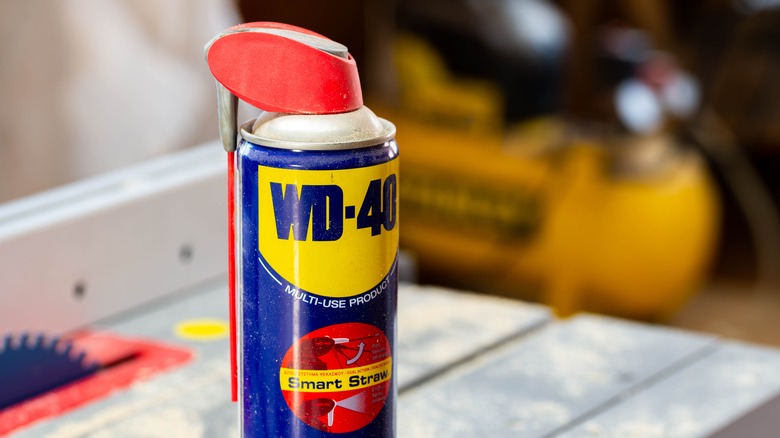Run Your Sprinklers More Efficiently With The Help Of WD-40
A green, lush lawn delights the eyes and speaks of the homeowner's commitment to the upkeep of their home. Sprinklers play a crucial role in nurturing lawns and gardens. However, with time, they're prone to mineral deposits that hinder their functionality. WD-40 provides a solution by decalcifying these deposits, ensuring smooth operation. You can use this hack to clean your sprinkler heads in a few easy steps.
First, grab some WD-40 Specialist Silicone Lubricant, a bucket filled with warm water, a clean cloth or rag, and a small brush. Then, disconnect the water supply to your sprinkler system. Next, detach the sprinkler heads and wash and dry them to soften and dislodge dirt. Spray WD-40 over the sprinkler heads, focusing on the nozzles and openings. Wipe off any residual WD-40 using a cloth or rag. Then, reconnect the sprinkler heads and resume the water supply. By following this method, you'll extend the life and efficiency of your sprinklers.
How WD-40 works to clean up your sprinkler heads
WD-40 is a versatile lubricant that can help break down mineral buildup and other debris that can clog sprinkler heads. Its unique formula also helps with descaling. There are a few ways that WD-40 can be beneficial for descaling tasks, particularly those that could impact your sprinkler system. One key benefit that WD-40 provides is dissolving mineral deposits. WD-40 excels in breaking down mineral accumulation that might block pipes, faucets, and various plumbing components. Its specialized composition seeps into crevices, dissolving these deposits and facilitating their removal.
WD-40's benefit to sprinklers extends beyond mineral deposit removal. It also shields metal from rust and corrosion often instigated by mineral deposits. A coat of WD-40 can deter mineral formation and prolong the durability of your plumbing. Beyond descaling, WD-40 is adept at unlocking rusted elements. Its lubricative nature aids in loosening rust-afflicted bolts, nuts, and metallic components, simplifying their removal or adjustment.

